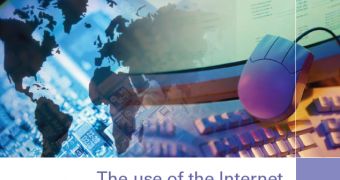A 158-page report released by the United Nations’ Office on Drugs and Crime highlights the fact that in the past period terrorist organizations have often relied on the Internet to achieve their goals.
The paper – entitled “The use of the Internet for terrorist purposes” – is meant to aid Member States in the fight against terrorism.
The report covers policy and legislative frameworks, terrorism in the international context, investigations and intelligence gathering, international cooperation, prosecutions, and private sector cooperation.
The UN reveals that one of the primary uses of the Internet by terrorists is for the dissemination of propaganda, which most often takes the form of multimedia communications.
The Internet is also often utilized to recruit supporters.
“Terrorist organizations increasingly use propaganda distributed via platforms such as password-protected websites and restricted access Internet chat groups as a means of clandestine recruitment. The reach of the Internet provides terrorist organizations and sympathizers with a global pool of potential recruits,” the report reads.
Online resources are not only used for propaganda and recruitment, but also for radicalization – the process in which the terrorists convince their recruits to commit violent acts based on extremist ideologies.
The Internet can successfully be used to obtain financing, but that doesn’t apply only to organizations with a noble purpose in mind, but also to malicious actors. Terrorists can collect funds via direct solicitation, e-commerce, charity organizations, and the exploitation of online tools.
Finally, training and planning are also done with the aid of cyber on many occasions.
However, the report also teaches Member States how to utilize the Web for countering terrorist activity.
The UN underscores the fact that “increased Internet use for terrorist purposes provides a corresponding increase in the availability of electronic data which may be compiled and analysed for counter-terrorism purposes.”

 14 DAY TRIAL //
14 DAY TRIAL //